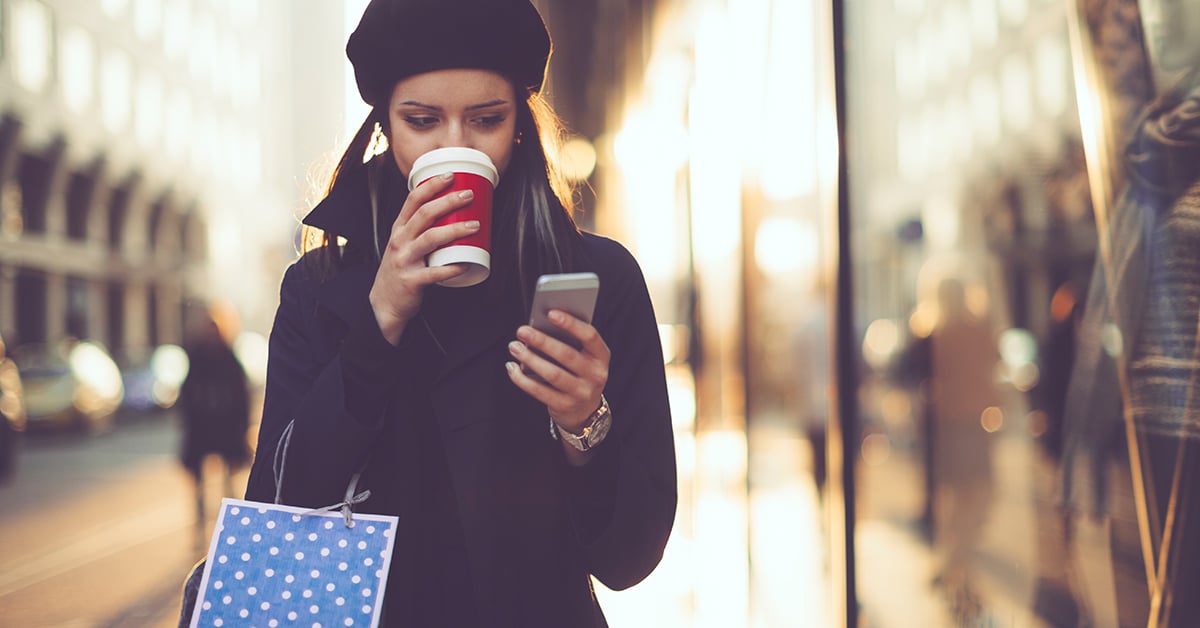Are Women Influenced by Influencer Marketing?

Today, the word has spread that influencer marketing can be a very effective and efficient way for brands to reach consumers. But does this word-of-mouth marketing speak to the needs of women? At the end of 2016, the marketing influencer platform Bloglovin’ set out to see how female consumers really felt about influencer marketing content, whether it affected their attitudes and actions, and which influencer tactics would generate a negative female response. eMarketer shared the results of the study to show whether influencer marketing swayed or dismayed female consumers.
The Female Follow of Marketing Influencers
After polling more than 22,000 women around the world, the Bloglovin’ platform found that 54% of women actually went out and purchased a product after it was personally recommended by a marketing influencer. The results also showed that 45% of respondents started following a brand on social media after it was highly recommended by a marketing influencer.
What Women Don’t Want in Marketing
Regardless of whether a woman responds to influencer marketing or not, there are certain tactics that most women simply will not tolerate.
First of all, women are busier than ever today, so they don’t want to be overloaded and overburdened with too many influencer marketing messages. In fact, an influx of marketing messages and sponsored content resulted in 37% of women immediately un-following a marketing influencer.
Another aspect affecting how women perceive influencer marketing is authenticity. A whopping 61% of women said that if content didn’t come across as genuine, it would prevent them from reading and engaging with an influencer’s sponsored posts. When asked about what made content appear inauthentic, 59% of women said that any posts that differed from the rest of the influencer’s content make them question the influencer’s integrity and disregard their advice. In addition, more than 30% of women felt that posts labeled as #paid or with the hashtag #ad were clearly inauthentic and couldn’t be trusted. But this is complicated by the new FTC guidelines regarding sponsored marketing content that clearly states that every paid post needs to be prominently labeled as paid in order to make readers aware that the content is sponsored by a brand, which may sway an influencer’s opinions.
How to Attract Women to Influencer Marketing
According to the Bloglovin’ report, brands and marketers that want to make the most out of their influencer marketing should run campaigns on social media platforms that have the highest female followings and resonate best with women.
Which social media platforms appeal the most to women today? The report showed that influencer marketing posts on Facebook generated the greatest female interaction, with 57.1% of women saying they were open to engaging with sponsored content on the platform. Following closely behind was Instagram, with almost 49% of women preferring the platform to all others. Yet only 7% of women had engaged with influencer content on Snapchat, mainly because the platform prohibits paid posts.
Interestingly, most women were willing to read sponsored content on multiple social platforms. The report showed that a whopping 62% of women followed marketing influencers on at least two social platforms, while 32.8% followed marketing influencers on three social platforms.
Follow the latest in influencer marketing. Contact MDG.
MDG, a full-service advertising agency with offices in Boca Raton and New York, NY, is one of Florida’s top branding firms. MDG’s capabilities include print advertising, direct mail marketing, branding, logo design, creative, media buying and planning, radio and TV advertising, outdoor, newspaper, digital marketing, website design and development, online video advertising, infographic development, email marketing, video marketing, mobile marketing, content marketing, social media marketing, paid search marketing, and SEO. To learn about the latest trends in advertising and branding, contact MDG.
